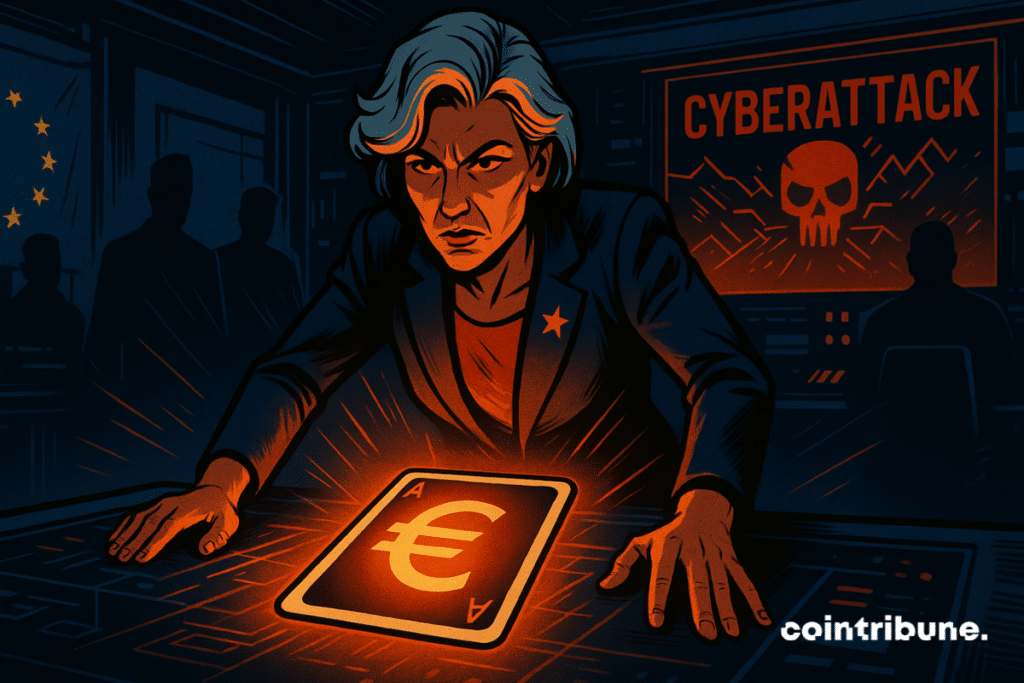Digital Euro: The ECB’s Final Gambit in the Currency Revolution
The European Central Bank just played its last card—and the entire financial world is watching.
Why Now? Why This?
Central bankers scramble to catch up with decentralized finance. They’re launching a digital euro not out of innovation, but sheer survival. Private cryptos threaten their monetary monopoly—so they’re building a walled garden with state-backed credentials.
How It Works—And Who It Hurts
The digital euro runs on permissioned blockchain tech—fast, traceable, and centralized. It cuts out intermediaries but hands ultimate control back to the ECB. Every transaction visible, every wallet identifiable. Privacy advocates shudder. Banks sweat. Traders yawn.
The Real Stakes
This isn’t about modernizing payments—it’s about controlling them. The ECB gets a direct line to citizens’ spending habits while commercial banks lose their grip on deposit flows. Another case of regulators building the cage after the animals have already escaped.
Finance’s Ironic Twist
Wall Street spends billions chasing blockchain efficiency while central banks create digital currencies that do everything crypto was meant to destroy. The ultimate irony? They’ll probably call it 'innovation' while using it to freeze dissidents’ accounts.

In brief
- For the ECB, the digital euro would serve as a backup solution in major incidents (cyberattacks, application failures).
- An “offline” option would allow local payments during a power outage, with later synchronization.
- The project aims to reduce dependence on private payment solutions, often non-European.
The ECB defends its digital euro as a bulwark against cyberattacks
Piero Cipollone, ECB board member, unveiled this Thursday before Brussels MEPs. He defends the digital euro as a resilience tool against cyber threats.
His example strikes for its simplicity: if a cyberattack takes down “a bank’s application” but leaves the central system intact, the user could still access their account via the ECB’s digital euro application.
The statement fits within a worrying context: cyberattacks against financial infrastructures are multiplying and causing service interruptions. The digital euro WOULD then offer a crucial bypass to maintain economic activity.
The argument is primarily operational. As society moves away from cash, access to physical currency becomes uncertain in emergencies. The digital euro would complement cash, which Cipollone describes as our “only real fallback solution” today to guarantee a second safety net.
An offline feature is also under study. It would allow local payments during a power outage, with deferred synchronization once the network is restored. The stated goal is to improve service continuity.
More broadly, the project aims to reduce single points of failure by adding a public payment channel, standardized and interoperable, to limit exposure to private application failures and congestion at providers.
Europe facing the challenge of monetary sovereignty
This announcement fits into a broader battle for European monetary sovereignty. Christine Lagarde recently hardened her stance against foreign stablecoins, demanding “firm” guarantees for any issuer wishing to operate within the Union.
The numbers reveal the magnitude of the challenge. Nearly 290 billion dollars worth of stablecoins currently circulate worldwide. Tether’s USDT accounts for 60% of this market, reinforcing the dollar’s hegemony in the digital economy.
The digital euro also aims to counter the growing influence of Apple Pay, Google Pay, or PayPal. These American tech giants dominate European digital payments. A situation the ECB considers unacceptable.
The European project is progressing concretely. Technically ready according to authorities, the digital euro could be launched before the end of 2025. Tight timing in the face of the American competition that is multiplying favorable regulatory initiatives.
The ECB is playing big with this strategy. Europe must catch up on technological delay while preserving its monetary sovereignty. The digital euro represents much more than a simple technical project: it is the future of European financial autonomy at stake in this digital battle.
Maximize your Cointribune experience with our "Read to Earn" program! For every article you read, earn points and access exclusive rewards. Sign up now and start earning benefits.

